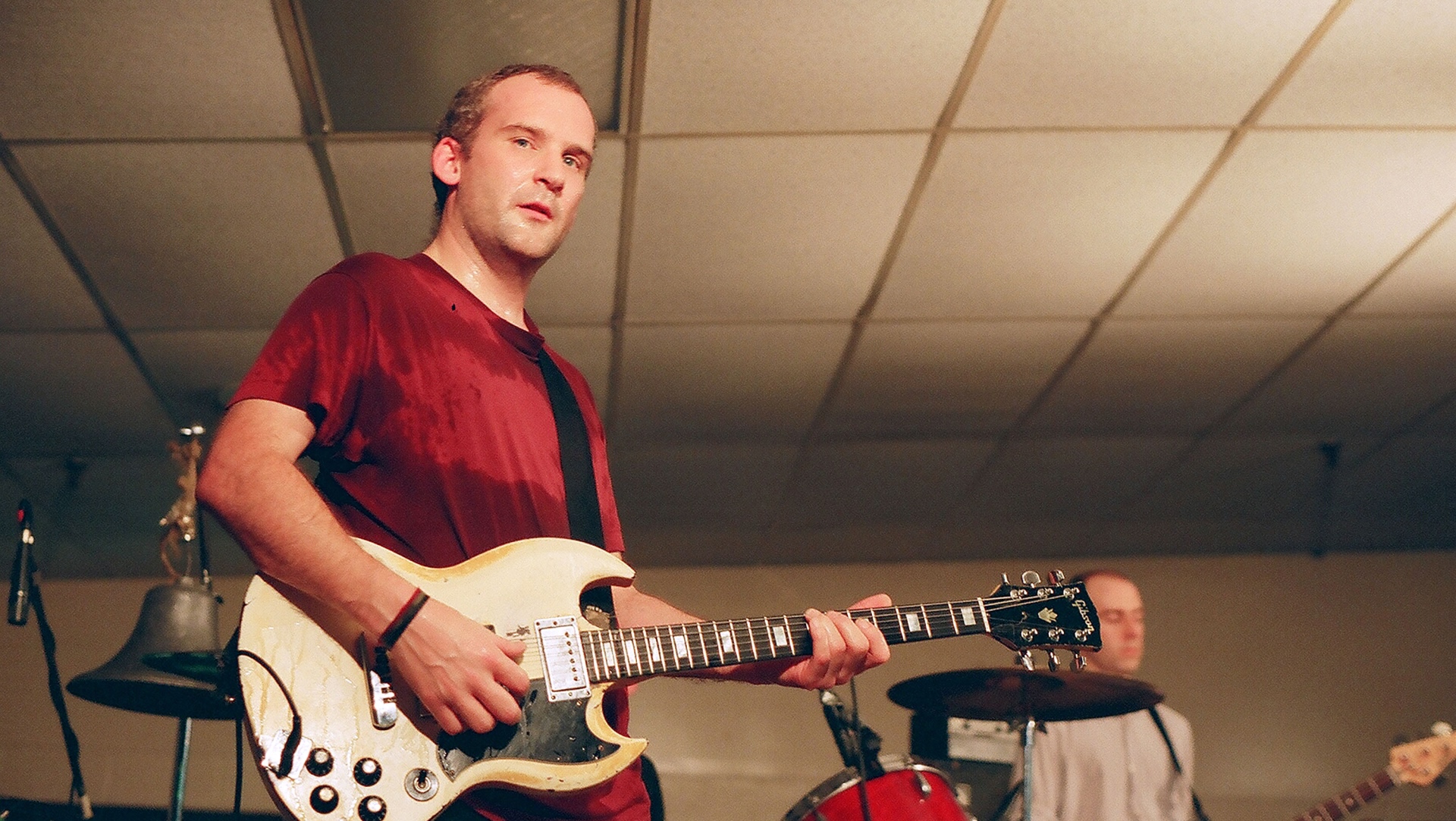Common Sense Says It’s by Design: Fugazi’s ‘Repeater’ at 35
Four years after forming, the D.C. post-hardcore legends issued their enraged yet optimistic debut.
by Tony Gervino
Discipline and determination. Focus and commitment. Those are words rarely associated with music and yet they’re the recurring themes of the Fugazi story, which took off after the release of the band’s full-length debut, Repeater. That touchstone came out 35 years ago today(ish).
Rarely, if ever, has a band set long-term creative goals and, with a purity of intent, sprinted through a half-dozen albums without a single commercial concession — before shutting it all down while the group was still ascending.
During their 17-year career, which ended in 2003, the members of Fugazi walked and talked in lockstep, which, considering the personalities involved, was no small feat. The band was founded by former Minor Threat frontman Ian MacKaye and bassist Joe Lally. Drummer Brendan Canty entered next and the last to join was guitarist and occasional lead singer Guy Picciotto.
MacKaye, a hero to the D.C. hardcore scene that had begun infecting the rest of the country, made it clear from the get-go that his definition of success had precious little to do with money. When he wasn’t working on his own music, he did his best to advance the cause of other underground heroes through his self-funded label, Dischord Records, a sanctuary for bands like Teen Idles, Youth Brigade and Scream. His career also became a North Star for unsigned post-hardcore bands who had been hounded by major labels.
After the group’s pair of EPs — a self-titled debut in ’88 and Margin Walker in ’89 — had given hardcore music fans an off-ramp from the nihilism and destruction (and sketchy musicianship) that was choking the genre, Fugazi eventually dropped Repeater. And that’s when all hell broke loose.
The opening lyrics to the title track, written by MacKaye, put their fist in the mouth of societal norms:
You say I need a job
I’ve got my own business
You want to know what I do?
None of your fucking business
Taken together, the 11 songs on Repeater (which includes an instrumental, “Brendan #1”) show a sonic cohesion that quickly vaulted Fugazi above most other post-hardcore bands at the time. It’s an angry and disgusted record, about being trapped in a vicious cycle of drugs, death and dead-end jobs. Yet the album’s unhurried earnestness, and its melodicism, make Repeater feel more hopeful than was probably meant.

Despite the fact that MacKaye’s songwriting and live performances — and advocacy for indie bands on indie labels — had publicly elevated him above the other members, it’s very much a band record. Picciotto provided more than just a foil for MacKaye. His songs added a fantastical lyrical dimension to Fugazi that MacKaye’s brutal truths didn’t.
While Fugazi blazes through songs like “Greed,” “Styrofoam” and “Shut the Door,” MacKaye and Picciotto trade riffs and vocals. Canty and Lally work in tandem to keep the cacophony rooted in musicality. As the album builds in intensity, Fugazi’s members play as if their instruments are stabbing each other. Repeatedly.
Although it’s been said that the album’s title is open to interpretation, the name Repeater clearly attacks the soul-sucking drudgery and mundaneness of everyday life. The lines between heroes and villains in Fugazi’s world are as blunt as black or white. Faceless and soulless businessmen control and exploit us, leaving us fat and oblivious with little hope and a fever for consumerism. The lyrics to “Merchandise” say it all:
Merchandise, it keeps us in line
And common sense says it’s by design
What could a businessman ever want more
Than to have us sucking in his store
Repeater was a clarion call to groups of disaffected teenagers scattered throughout the country who knew it was time to get their shit together and form the bands that would make up the nascent grunge music scene. Kurt, Eddie and the others simply didn’t know they’d been waiting for Fugazi until the group kicked down the door.
Repeater would go on to sell an astonishing 500,000 copies, and quickly launched the band into headliner status in larger venues — a development that probably infuriated MacKaye, as he was militant about keeping ticket prices low.
How low? Fugazi tickets were priced stubbornly at $5 over several grueling tours, even as the band’s popularity soared and scalpers were getting 20 times that around the corner from venues.
Last year, parody site The Hard Times ran a Fugazi piece in which MacKaye, who turned 63 this week, scuttled a highly anticipated reunion tour due to tickets selling quickly, stating he didn’t get into music “to make money.”
On this occasion, that quote might as well be real.



